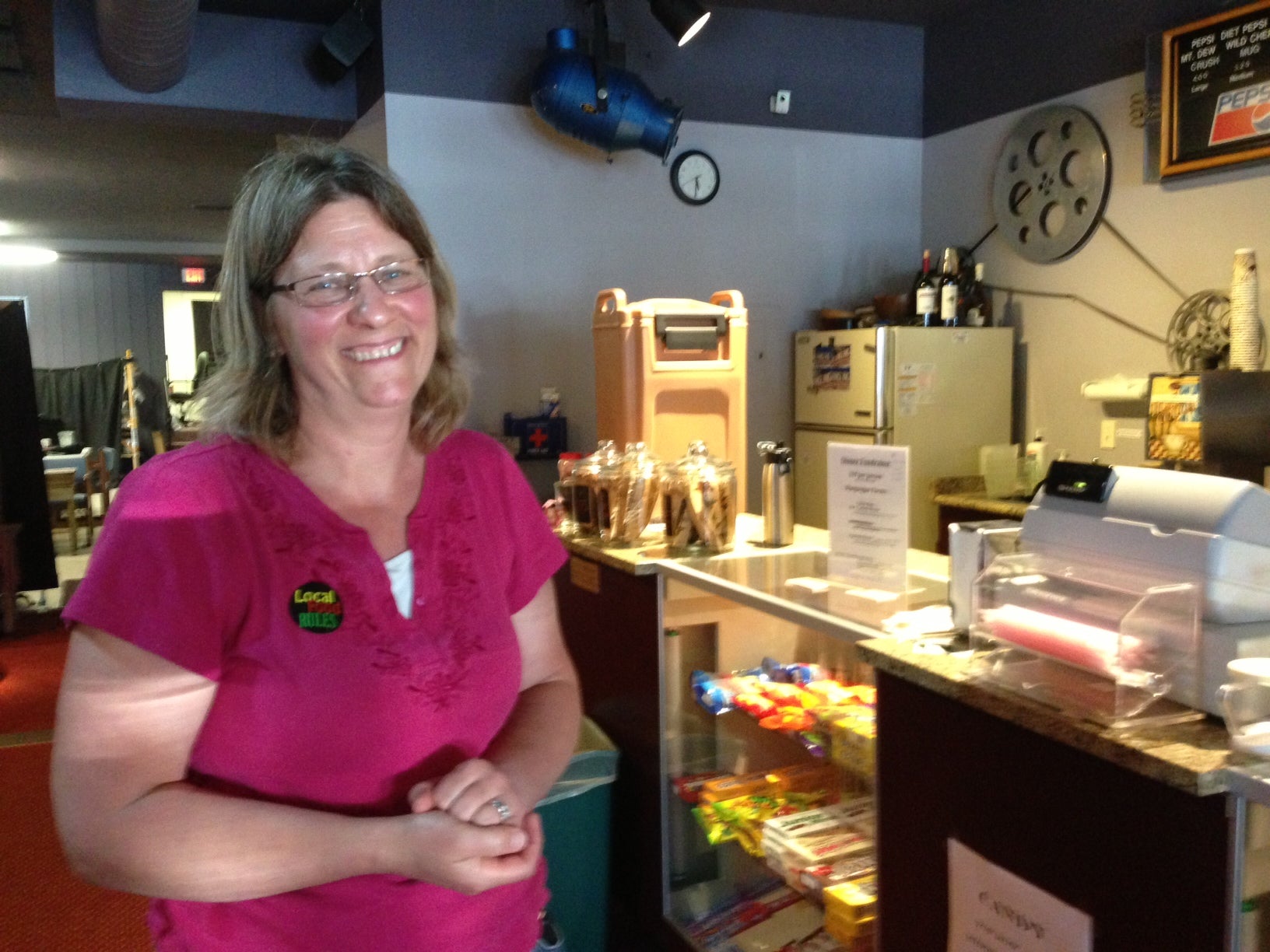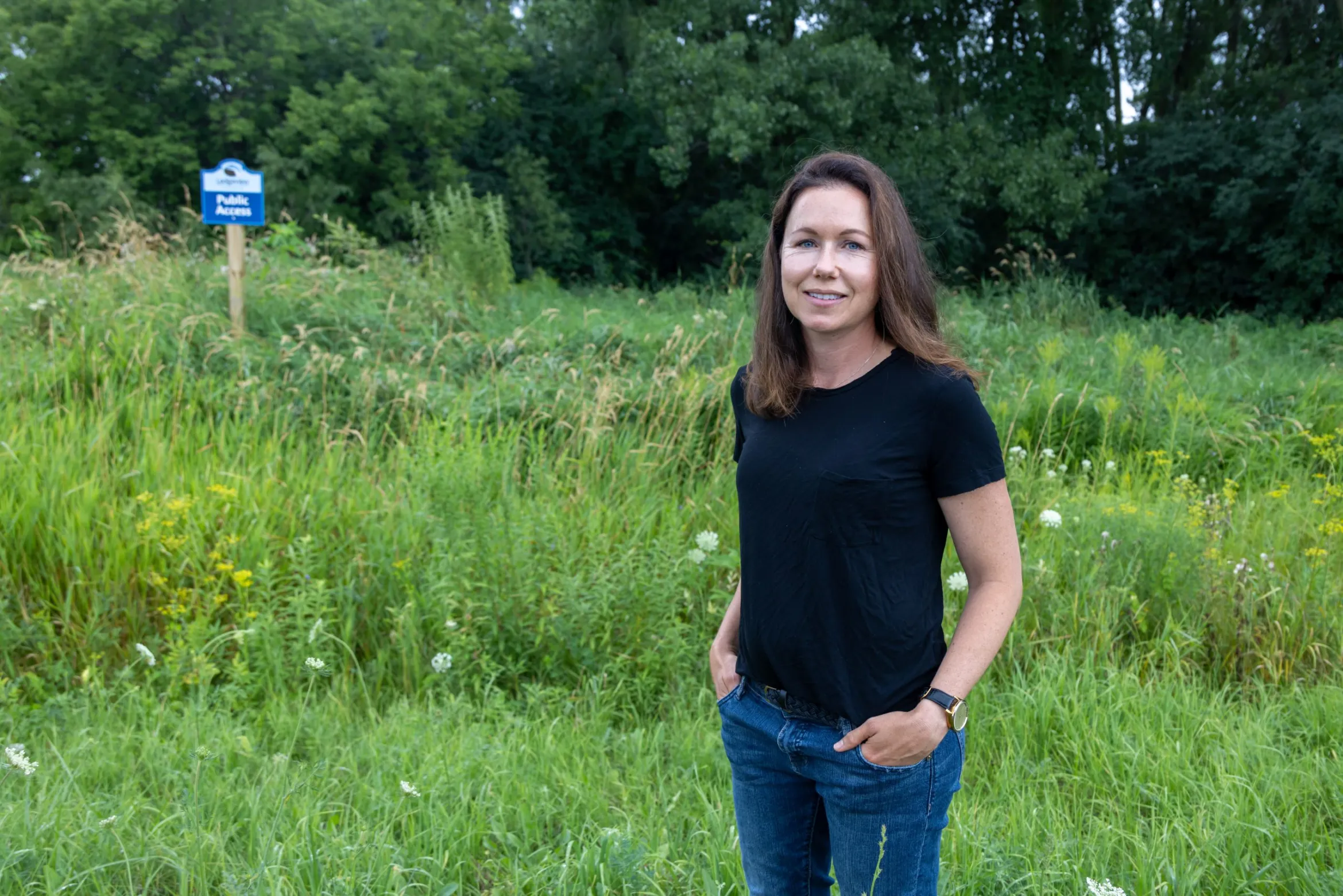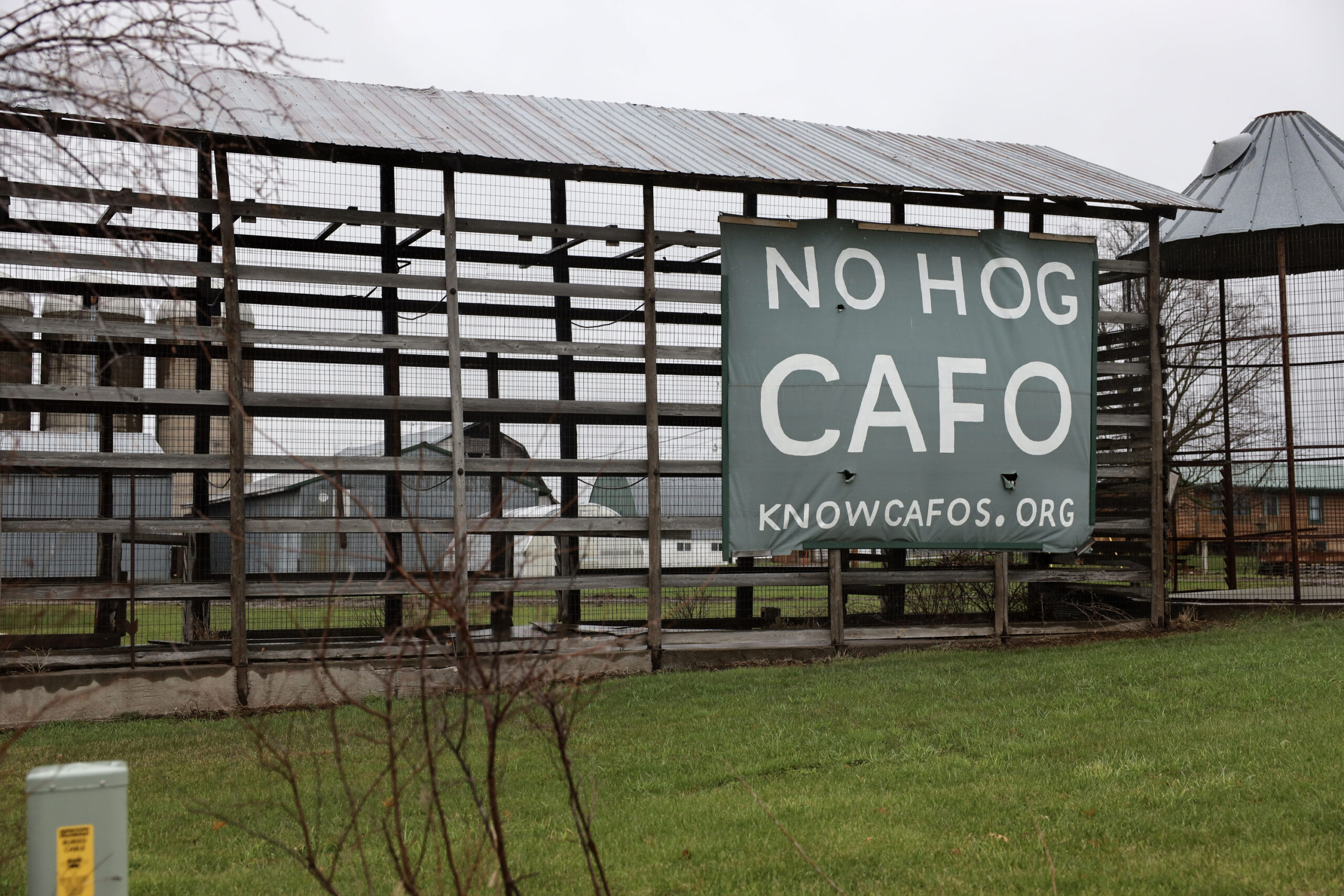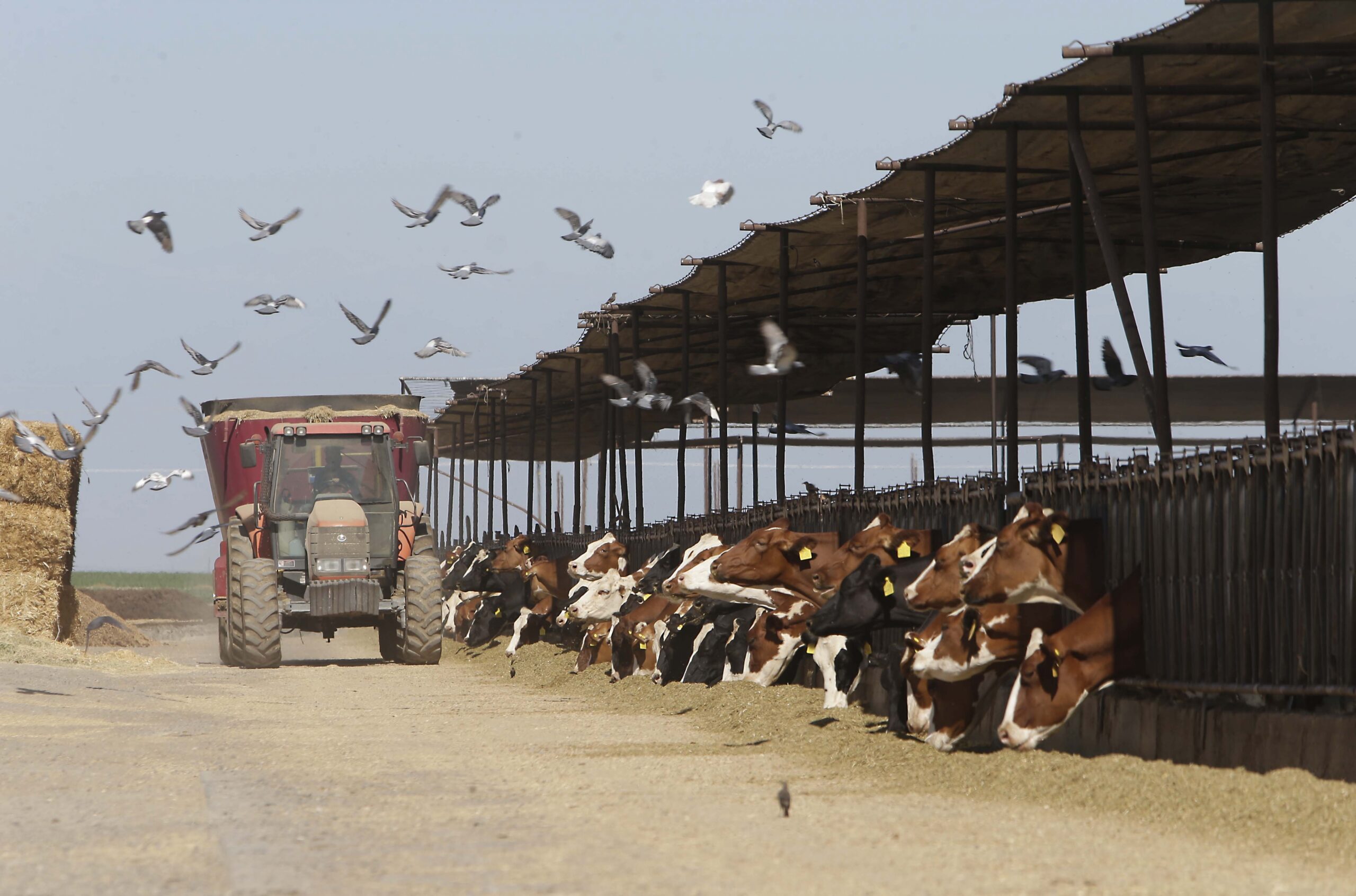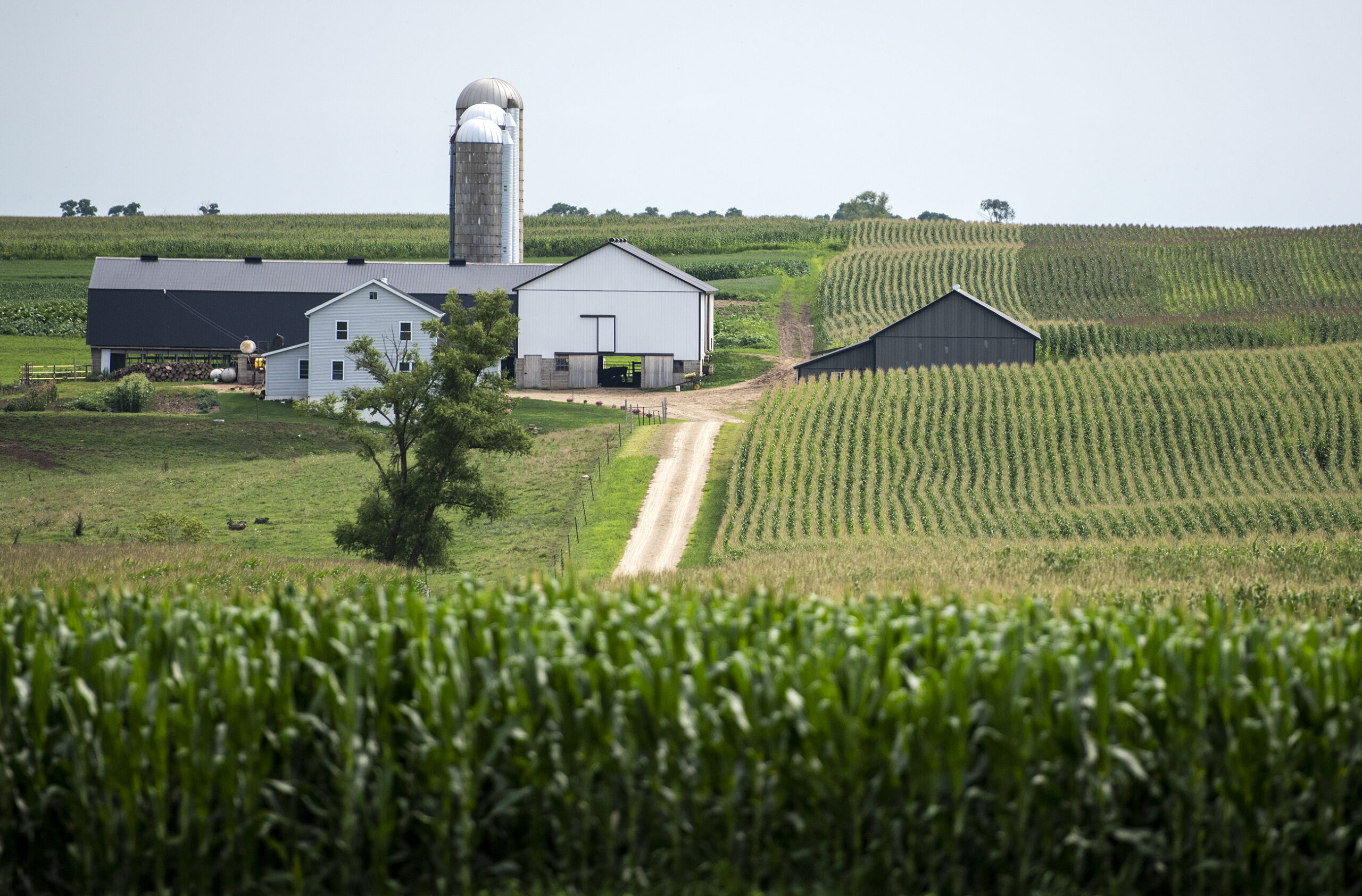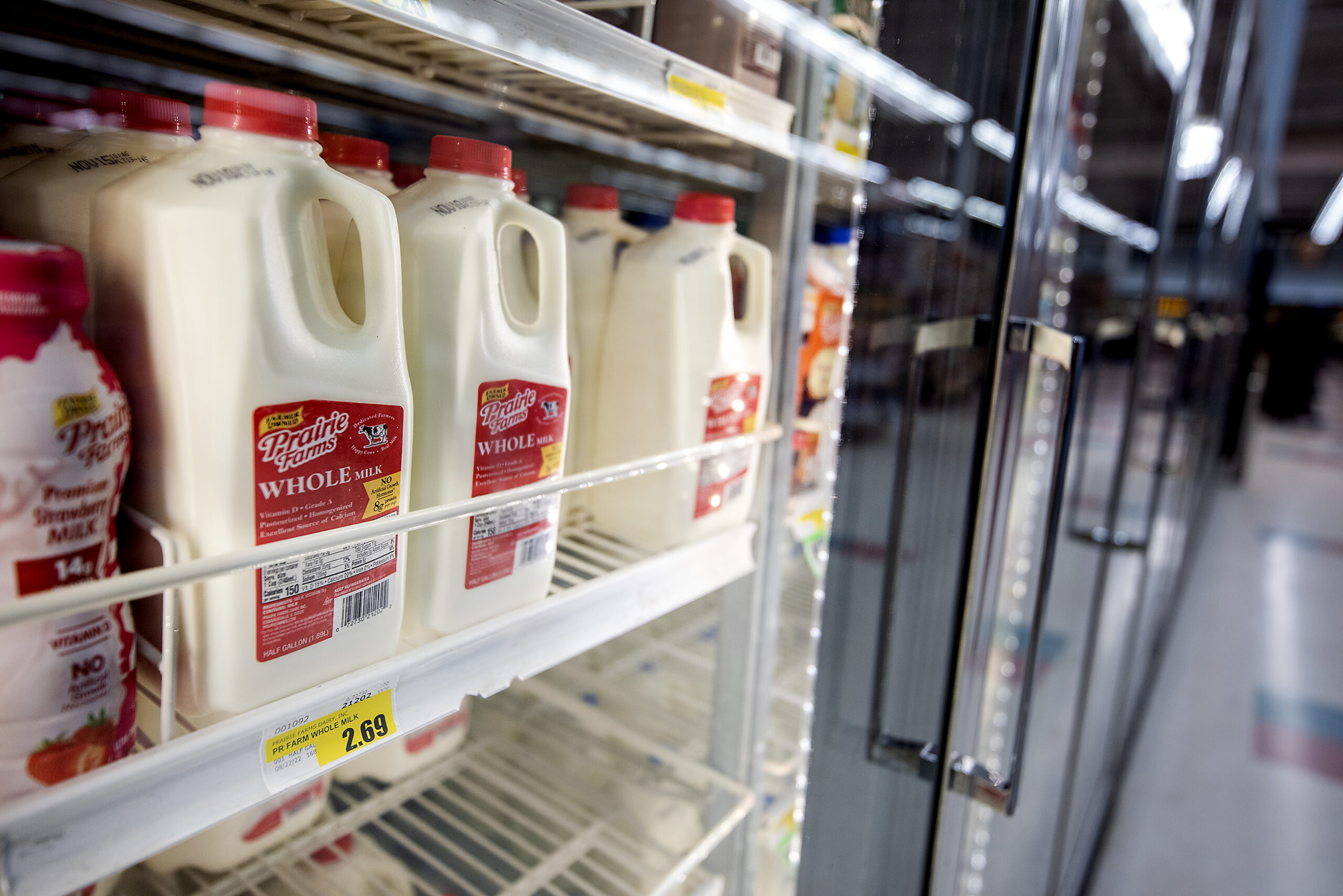With Loganville farmer Vernon Hershberger’s trial underway in Sauk County, raw milk advocates say this is a pivotal moment in the raw and local food movement.
In the concession area of the Al Ringling Theatre in Baraboo, raw food advocates from across the country sing the praises of local farmers and trade tips on how to survive what they call the “war on food.” Next door in the lobby, Jen Morrison of Madison sits at a table covered in pamphlets and books outlining the benefits of raw milk.
Morrison has been a member of Vernon Hershberger’s private food club, Grazin’ Acres, for about a year. She pays a $25 annual membership fee that is considered an investment in the farm. Morrison gets beef and poultry raised by the Hershberger’s, as well as raw milk, which is at the center of the court case.
Stay informed on the latest news
Sign up for WPR’s email newsletter.
“We’ve also tried his cream. We like his creme fraiche, which is basically sour cream.”
Morrison is one of about 200 members of Grazin’ Acres. She and other supporters are gathering at the theater, across the street from the Sauk County Courthouse, where Hershberger is on trial for operating without three licenses and continuing to sell his products after the state ordered him not to.
Like many of the members, Morrison is passionate about her food.
“As a mother, I have the right to choose the nutritious foods that I want to feed my son. I don’t want the government making that choice for me.”
Hershberger’s trial is being held in Wisconsin, but advocates say it represents a national issue.
Wisconsin Raw Milk Association board member Margo Redmond says it’s not just about milk.
“I’m concerned that producers of other commodities – not just raw milk, but eggs, meat, and produce – will start to put burdensome regulations on farmers’ markets.”
But raw milk opponents say the main issue is public health. Raw milk can contain bacteria that make people sick. According to the Wisconsin Department of Health Services, the exact number of illnesses caused by raw milk is unknown. There have been four outbreaks in the last decade that affected people who ate unpasteurized cheese curds or drank milk.
Shawn Pfaff is the spokesman for the Wisconsin Safe Milk Coalition, which includes members of the dairy industry, medical community, and insurance companies. They think raw milk should not be sold. Pfaff says one major bacterial outbreak could scare people away from milk.
“If it’s not safe – if it’s not perceived as safe – they don’t want their children to drink it, maybe they’ll pass on it next time they’re in the dairy aisle. The second there’s an outbreak, we’re concerned there could be damaging affects to the dairy industry.”
Raw milk laws vary state by state. In Wisconsin, there are all sorts of nuances to the law. State Senator Glenn Grothman (R-West Bend) wants to change that, and says he’ll introduce a bill allowing raw milk sales within the next month. The legislature passed a bill allowing the sales in 2010, but it was ultimately vetoed by then-Governor Jim Doyle after the medical community pressured him to stop it.
Back at the Al Ringling Theatre, Grazin’ Acres member Deborah Jacobs, of Cottage Grove, takes a break from selling food to fellow Hershberger supporters. She says she wants the legislature here in “America’s Dairyland” to legalize the sale of raw milk so people like Hershberger aren’t looked at as criminals.
“I don’t want to compare good, wholesome raw food from the farmer to drugs, but there’s been a war on drugs for how long? People will still find a way to get it.”
The Wisconsin Raw Milk Association says they know of 50 farmers selling raw milk underground but even more operate under the radar. The outcome of the trial could determine whether more emerge or if they go deeper into hiding.
Wisconsin Public Radio, © Copyright 2024, Board of Regents of the University of Wisconsin System and Wisconsin Educational Communications Board.

